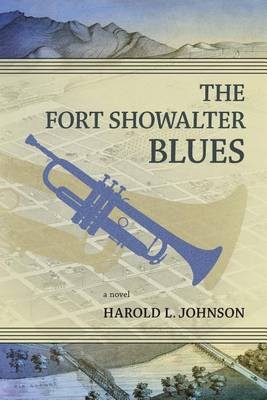
Live in Joe Birdsong’s world. It is our world, in mid-20th Century, where a promising young African-American begins to build his musical acumen in Portland, Oregon. He becomes one of the first black high school teachers there. Paternity led to an early marriage that was bound for the irreconcilable rocks. Then the Army drafted Joe, and his educational journey heads south—Deep South. The Heavy Brothers are stationed there—trying to pound sense into Joe. Rednecks are there, too, keeping venal traditions alive—trying to pound sense out of him. Military stiffness bristles around him, but at night, the beat soars, casting forth exuberant chords and cool vocalizations. Musicians and audiences meld into mass humanity—a pulsating ensemble of human DNA. Violence may be sounded, expressed as an interpretation, but togetherness is the joyous explosion—most satisfying, a total groove.
Joe Birdsong tells the story in a first person, real-time reflection of his life, an odyssey. Black life in America pours over me—cool heat on desert sand. The music moves the spheres. It’s not just stardust. It is a record of pain unwarrantable and sadness without succor. Joe knows how he got there. His own blunders paved the path that delivered him. But it was human history that built the world he lives in, that we all live in. How does triumph factor in? How does a black soldier in Texas fit in, let alone survive. Feel it in shell voicings[1]—find a symbiotic ear. Pay attention to affinities of others. Pay attention to band leaders, members and listeners.
If you are patient and have a good ear, a strong woman may teach you how to love—or, at least how to find the path that fits you, and that will do. A veteran musician may show you to use the root of chords and you take the practice steps you need to trust yourself. The book’s closing scene describes a plane’s descent, but the mood lifts us. Joe Birdsong and many readers of The Fort Showalter Blues are on the rise.
Thanks, Mr. Harold L. Johnson,[2] for a compelling story told with immaculate craft. This is a sexy, dangerous, Homeric novel. And Joe Birdsong is a taciturn, modest man. I don’t know how you got your character to succeed in the telling. I’m just glad you got it done.
“Shell voicings, that’s what you call them,” he says, careful to enunciate the whole noun. "You just got the shell of the chord down here. See? You leave out everything between the root and the seventh. Just play the root and the seventh with your left hand.” Fowler’s big perfect fingers come down like the law in the middle of each black or white key. Out of nowhere, a sob wavers through my chest. My face might show it, but Fowler can’t see. (Joe birdsong hears his blind mentor Merce Fowler in The Fort Showalter Blues.)
[1] https://pianowithwillie.jazzedge.com/what-are-chord-shells/
[2] http://news.streetroots.org/2016/04/28/portland-authors-dream-long-time-making